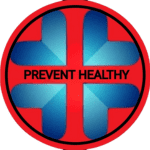Cardiovascular System, Heart
Caring for heart disease patients
![]()
Caring for heart disease patients involves a multi-faceted approach aimed at managing their condition, preventing complications, and improving their overall quality of life. Here are some essential aspects of caring for patients with heart disease:
-
Medication Management: Ensuring patients are taking their prescribed medications regularly and monitoring for any side effects or interactions.
-
Lifestyle Modifications: Encouraging healthy lifestyle changes such as regular exercise, following a heart-healthy diet low in saturated fats and cholesterol, quitting smoking, and managing stress.
-
Regular Monitoring: Monitoring blood pressure, cholesterol levels, and other relevant parameters regularly to track the progression of the disease and adjust treatment as necessary.
-
Education: Providing patients and their families with information about heart disease, its risk factors, symptoms, and management strategies to empower them to make informed decisions about their health.
-
Support Groups: Connecting patients with support groups or counseling services to help them cope with the emotional and psychological impact of living with heart disease.
-
Cardiac Rehabilitation: Referring eligible patients to cardiac rehabilitation programs, which typically include supervised exercise, education, and counseling to improve cardiovascular health and reduce the risk of future cardiac events.
-
Monitoring and Managing Risk Factors: Identifying and addressing modifiable risk factors such as hypertension, diabetes, obesity, and high cholesterol through lifestyle modifications and, if necessary, medication management.
-
Regular Follow-Up: Scheduling regular follow-up appointments to assess the patient’s progress, adjust treatment as needed, and address any concerns or questions they may have.
-
Emergency Preparedness: Educating patients about the warning signs of a heart attack or other cardiac events and what steps to take in case of an emergency, such as calling emergency services immediately.
-
Coordination of Care: Collaborating with other healthcare providers, such as cardiologists, dietitians, and physical therapists, to ensure comprehensive and coordinated care for the patient.
-
Psychosocial Support: Recognizing the emotional toll that heart disease can take and providing support to patients and their families to help them cope with anxiety, depression, or other mental health issues.
-
Advanced Care Planning: Discussing end-of-life care preferences and advanced directives with patients and their families to ensure their wishes are respected in the event of a serious illness or medical emergency.


Recommended Products
Kidney Inflammation Health Care Set
Diabetes Health Care Set
Bile Duct Cancer Health Care Set
Fatty Liver Health Care Set